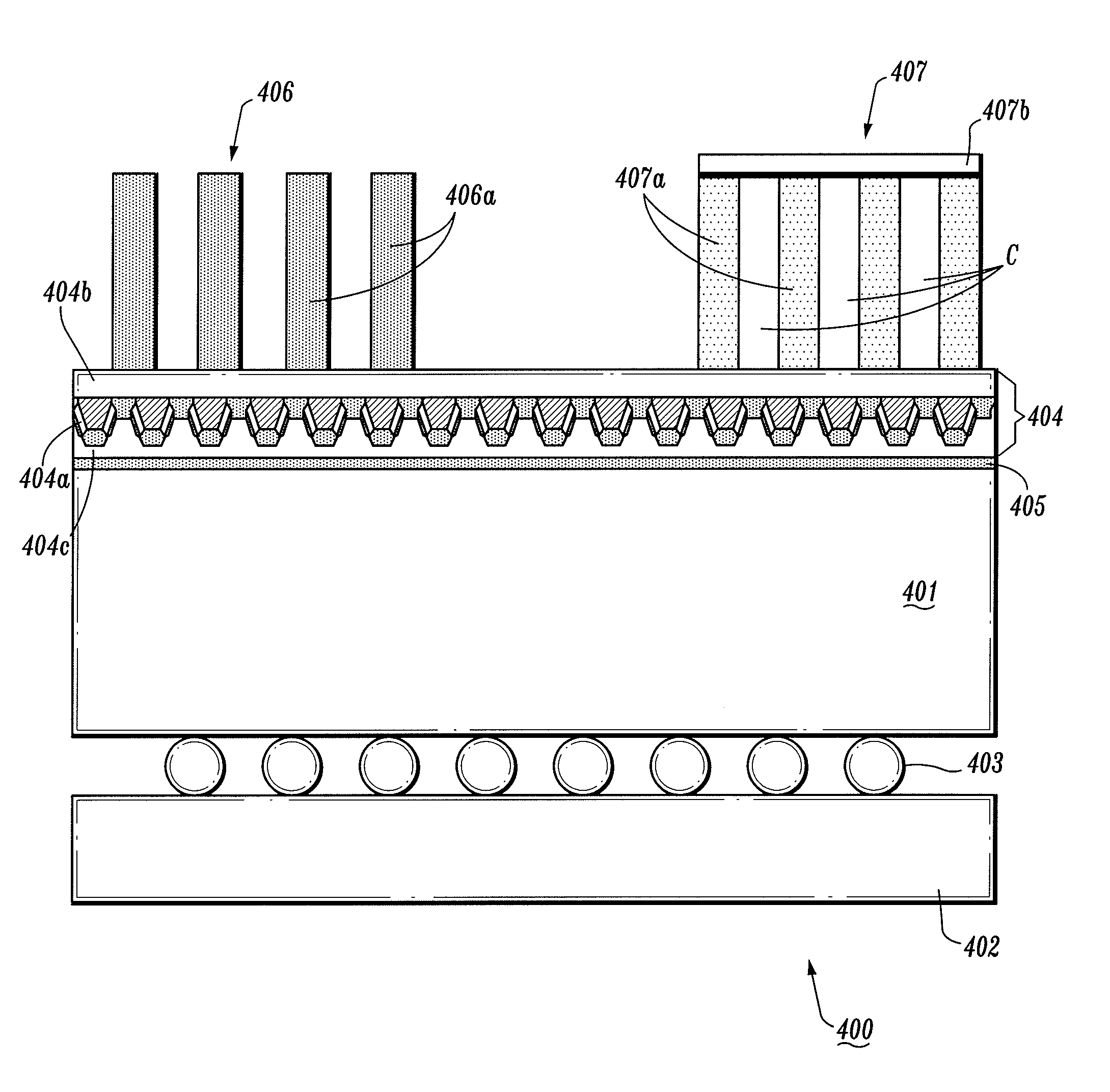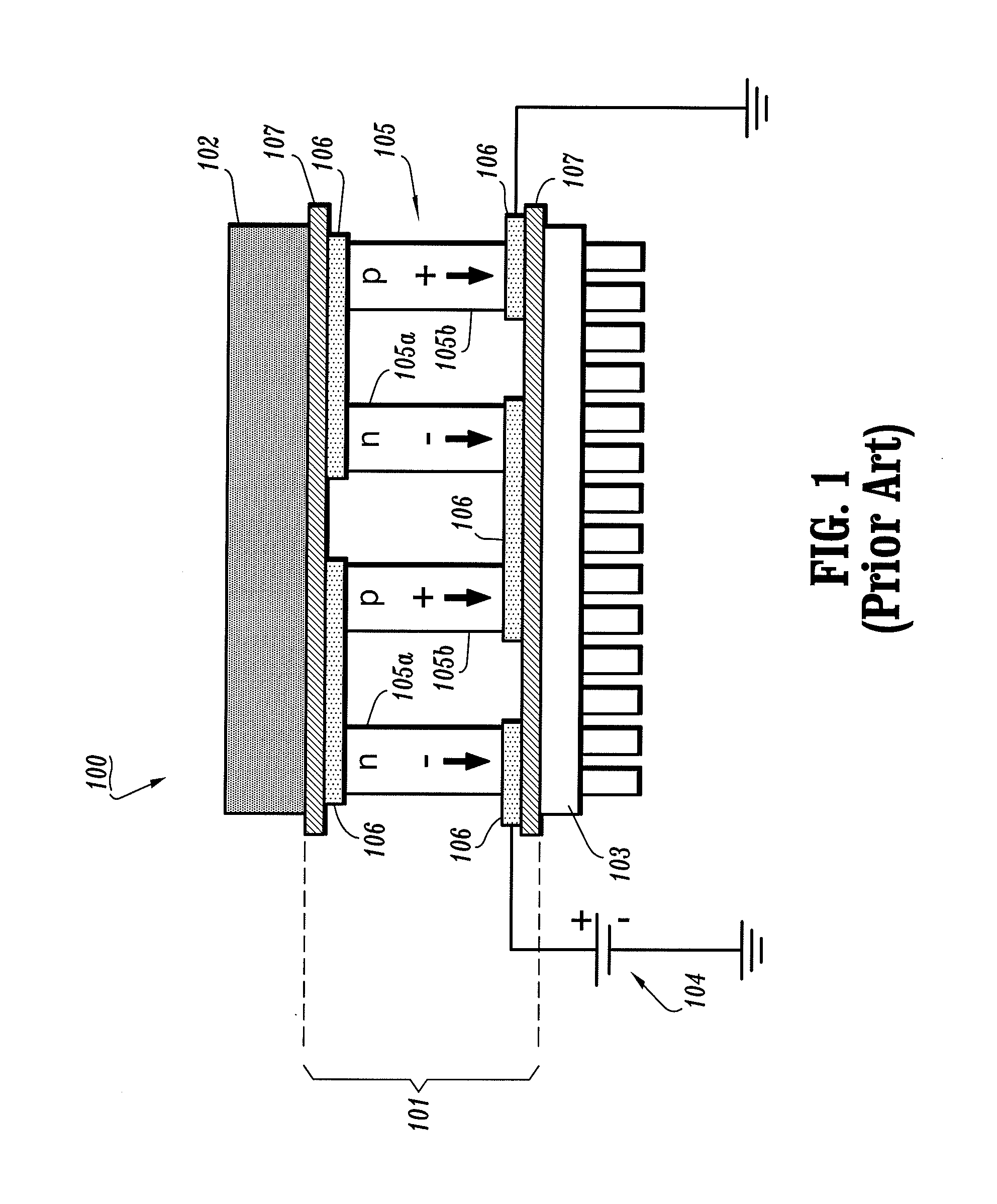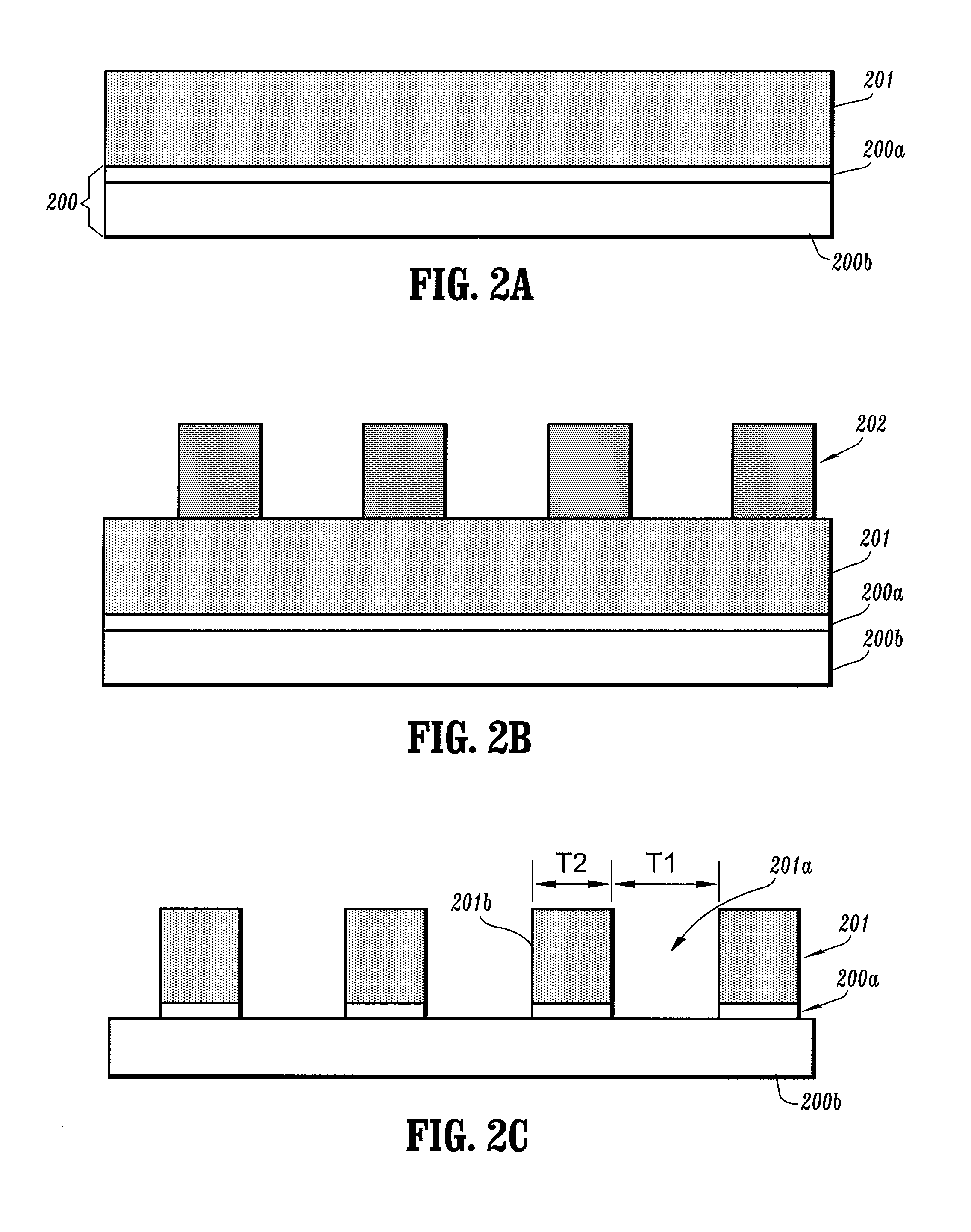Integrated Thermoelectric Cooling Devices and Methods for Fabricating Same
a thermoelectric cooling device and integrated technology, applied in the manufacture/treatment of thermoelectric devices, semiconductor devices, semiconductor/solid-state device details, etc., can solve the problems of increasing system performance limitations, increasing power density, and increasing efficiency, and achieve rapid and precise temperature control through local heating or cooling operations. , the effect of increasing heat removal
- Summary
- Abstract
- Description
- Claims
- Application Information
AI Technical Summary
Benefits of technology
Problems solved by technology
Method used
Image
Examples
Embodiment Construction
[0027]FIGS. 2A˜2K illustrate a method for fabricating a high-density semiconductor integrated thermoelectric cooling device according to an exemplary embodiment of the present invention. More specifically, FIGS. 2A˜2K illustrate a method for fabricating a high-density thermoelectric cooling module using semiconductor thin-film and VLSI (very large scale integration) processes. Referring to FIG. 2A, an initial step includes forming a first insulating film layer (201) (e.g., dielectric film) on a semiconductor substrate (200). The semiconductor substrate (200) comprises a layer of silicon (200a) formed on a buried oxide layer (200b). Depending on the application, the substrate (200) may comprise a SOI (silicon-on-insulator) substrate. In an exemplary embodiment wherein the substrate (200) is an SOI substrate, the back (bottom) of the substrate (200) would comprise a thick bulk silicon layer (not shown) with the buried oxide layer (200b) interposed between the bulk silicon layer and th...
PUM
 Login to View More
Login to View More Abstract
Description
Claims
Application Information
 Login to View More
Login to View More - R&D
- Intellectual Property
- Life Sciences
- Materials
- Tech Scout
- Unparalleled Data Quality
- Higher Quality Content
- 60% Fewer Hallucinations
Browse by: Latest US Patents, China's latest patents, Technical Efficacy Thesaurus, Application Domain, Technology Topic, Popular Technical Reports.
© 2025 PatSnap. All rights reserved.Legal|Privacy policy|Modern Slavery Act Transparency Statement|Sitemap|About US| Contact US: help@patsnap.com



